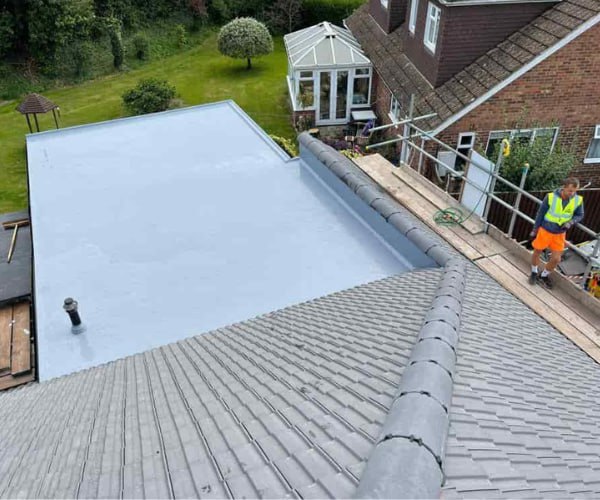Harnessing the Sun: Incorporating Solar Panels into Commercial Roof Repair Plans
Introduction: As businesses increasingly prioritise sustainability and energy efficiency, integrating solar panels into commercial roofing systems has become popular. Not only do solar panels offer environmental benefits by reducing carbon emissions and reliance on fossil fuels, but they also provide long-term cost savings and enhance the resilience of commercial roofs. This blog post will explore the benefits of incorporating solar panels into commercial roof repair plans and discuss key considerations for successful integration.
Sustainable Energy Generation:
- By harnessing the sun’s power, solar panels generate clean, renewable energy that can offset traditional electricity consumption from the grid. This renewable energy source reduces greenhouse gas emissions and mitigates the environmental impact of commercial operations, aligning with corporate sustainability goals and demonstrating a commitment to environmental stewardship.
Cost Savings and Return on Investment:
- While the initial investment in solar panel installation may seem significant, the long-term financial benefits outweigh the upfront costs. Solar panels reduce or eliminate electricity bills by generating onsite power, resulting in substantial savings on utility expenses over the system’s lifespan. Additionally, many governments offer incentives, rebates, and tax credits for commercial solar installations, further enhancing the return on investment.
Roof Protection and Longevity:
- Incorporating solar panels into commercial roof repair plans can extend the roofing system’s lifespan and enhance its durability. Solar panels act as a protective barrier, shielding the roof surface from harmful ultraviolet (UV) radiation, extreme temperatures, and weather-related damage. This added layer of protection helps prevent premature ageing and deterioration of roofing materials, reducing the frequency and cost of roof repairs and replacements.
Energy Independence and Resilience:
- Solar panels provide businesses with greater energy independence and resilience by reducing reliance on the centralised power grid. Solar-powered facilities can continue operating independently during grid outages or emergencies, ensuring uninterrupted business operations and critical services. Battery storage systems can enhance resilience by storing excess solar energy during low sunlight or peak demand.
Brand Enhancement and Market Differentiation:
- Investing in solar energy demonstrates corporate leadership and commitment to sustainability, enhancing brand reputation and market competitiveness. E-conscious consumers, investors, and stakeholders increasingly prefer businesses that prioritise renewable energy and environmental responsibility. Solar-powered facilities can leverage their sustainability initiatives as a unique selling point and differentiate themselves in the marketplace.
Conclusion: Incorporating solar panels into commercial roof repair plans offers many benefits, including sustainable energy generation, cost savings, roof protection, energy independence, and brand enhancement. By leveraging the sun’s abundant and renewable energy resources, businesses can reduce their environmental footprint, lower operating expenses, and future-proof their facilities against rising energy costs and climate-related risks. With careful planning and strategic integration, solar-powered commercial buildings can pave the way toward a more sustainable and resilient future.
Call us on: 01234 981 898
Click here to find out more about FCB Roofing Cranfield
Click here to complete our contact form and see how we can help with your roofing needs.

